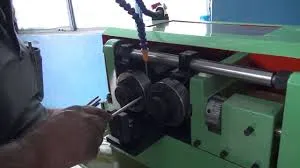
-
 Afrikaans
Afrikaans -
 Albanian
Albanian -
 Amharic
Amharic -
 Arabic
Arabic -
 Armenian
Armenian -
 Azerbaijani
Azerbaijani -
 Basque
Basque -
 Belarusian
Belarusian -
 Bengali
Bengali -
 Bosnian
Bosnian -
 Bulgarian
Bulgarian -
 Catalan
Catalan -
 Cebuano
Cebuano -
 Corsican
Corsican -
 Croatian
Croatian -
 Czech
Czech -
 Danish
Danish -
 Dutch
Dutch -
 English
English -
 Esperanto
Esperanto -
 Estonian
Estonian -
 Finnish
Finnish -
 French
French -
 Frisian
Frisian -
 Galician
Galician -
 Georgian
Georgian -
 German
German -
 Greek
Greek -
 Gujarati
Gujarati -
 Haitian Creole
Haitian Creole -
 hausa
hausa -
 hawaiian
hawaiian -
 Hebrew
Hebrew -
 Hindi
Hindi -
 Miao
Miao -
 Hungarian
Hungarian -
 Icelandic
Icelandic -
 igbo
igbo -
 Indonesian
Indonesian -
 irish
irish -
 Italian
Italian -
 Japanese
Japanese -
 Javanese
Javanese -
 Kannada
Kannada -
 kazakh
kazakh -
 Khmer
Khmer -
 Rwandese
Rwandese -
 Korean
Korean -
 Kurdish
Kurdish -
 Kyrgyz
Kyrgyz -
 Lao
Lao -
 Latin
Latin -
 Latvian
Latvian -
 Lithuanian
Lithuanian -
 Luxembourgish
Luxembourgish -
 Macedonian
Macedonian -
 Malgashi
Malgashi -
 Malay
Malay -
 Malayalam
Malayalam -
 Maltese
Maltese -
 Maori
Maori -
 Marathi
Marathi -
 Mongolian
Mongolian -
 Myanmar
Myanmar -
 Nepali
Nepali -
 Norwegian
Norwegian -
 Norwegian
Norwegian -
 Occitan
Occitan -
 Pashto
Pashto -
 Persian
Persian -
 Polish
Polish -
 Portuguese
Portuguese -
 Punjabi
Punjabi -
 Romanian
Romanian -
 Russian
Russian -
 Samoan
Samoan -
 Scottish Gaelic
Scottish Gaelic -
 Serbian
Serbian -
 Sesotho
Sesotho -
 Shona
Shona -
 Sindhi
Sindhi -
 Sinhala
Sinhala -
 Slovak
Slovak -
 Slovenian
Slovenian -
 Somali
Somali -
 Spanish
Spanish -
 Sundanese
Sundanese -
 Swahili
Swahili -
 Swedish
Swedish -
 Tagalog
Tagalog -
 Tajik
Tajik -
 Tamil
Tamil -
 Tatar
Tatar -
 Telugu
Telugu -
 Thai
Thai -
 Turkish
Turkish -
 Turkmen
Turkmen -
 Ukrainian
Ukrainian -
 Urdu
Urdu -
 Uighur
Uighur -
 Uzbek
Uzbek -
 Vietnamese
Vietnamese -
 Welsh
Welsh -
 Bantu
Bantu -
 Yiddish
Yiddish -
 Yoruba
Yoruba -
 Zulu
Zulu
types of thread rolling machine
Types of Thread Rolling Machines
Thread rolling is a crucial manufacturing process used widely in industries to produce high-strength threads on various metallic and non-metallic components. Unlike traditional cutting methods, thread rolling involves the displacement of material to create threads, which often results in stronger and more precise final products. This technique is performed with the help of specialized machines known as thread rolling machines. Understanding the different types of thread rolling machines is essential for manufacturers seeking to optimize their production processes.
1. Flat Die Thread Rolling Machines
Flat die thread rolling machines are one of the most common types used in the manufacturing sector. They utilize two flat dies that work in tandem to shape the material into threads. The flat die design allows for multiple threads to be produced simultaneously, significantly increasing production efficiency. These machines are highly versatile and can be used for various materials including steel, aluminum, and plastics. Flat die machines are particularly suited for small to medium-sized production runs and are ideal for creating screws, bolts, and pins.
2. Cylindrical Thread Rolling Machines
Cylindrical thread rolling machines are designed for rolling cylindrical components. These machines employ cylindrical dies, which are mounted on a rotating axis. The workpiece is fed between these dies, which roll over the surface to create threads. This type of machine is preferred for high-volume production of threaded parts such as rods and shafts. One of the main advantages of cylindrical machines is their ability to produce large quantities of precise and consistent threads with minimal waste.
3. Planetary Thread Rolling Machines
types of thread rolling machine

Planetary thread rolling machines are regarded as some of the most advanced in the market. These sophisticated machines use a set of rotating dies that move in a planetary motion around the workpiece. This unique design enables them to produce complex thread profiles and fine details that other machines may struggle to achieve. Planetary machines are ideal for producing high-precision components where accuracy is paramount, such as automotive parts and aerospace fittings. Additionally, they are capable of handling a wide range of materials and can produce both external and internal threads.
4. Vertical Thread Rolling Machines
Vertical thread rolling machines stand out due to their compact design and efficient space utilization. In this type of machine, the workpiece is positioned vertically between the rolling dies. The vertical orientation enables easier loading of parts and can enhance the overall ergonomics of the production process. This type of machine is commonly used in applications where space efficiency is crucial, and it is especially beneficial for shorter parts. Vertical machines can be employed in a variety of industries, producing items like fasteners, screws, and other small parts.
5. Rotary Thread Rolling Machines
Rotary thread rolling machines, as the name suggests, utilize a rotary mechanism to produce threads on the workpiece. These machines typically feature rotating cylindrical dies that roll on the surface of the material, deforming it to create threads. Rotary machines are known for their efficiency and can produce high-speed outputs, making them ideal for large-scale manufacturing where speed is essential. They commonly produce components like bolts and heavy-duty fastening systems.
Conclusion
The choice of thread rolling machine plays a vital role in the overall efficiency and effectiveness of the production process. Each type of machine offers distinct advantages, catering to a variety of production needs based on the complexity of the parts, materials used, and production volumes required. Understanding these differences can help manufacturers select the right machinery to optimize their operations and ensure high-quality outputs. As industries continue to evolve, advancements in thread rolling technology will likely lead to even more innovative machines, further improving the manufacturing capabilities across various sectors.
